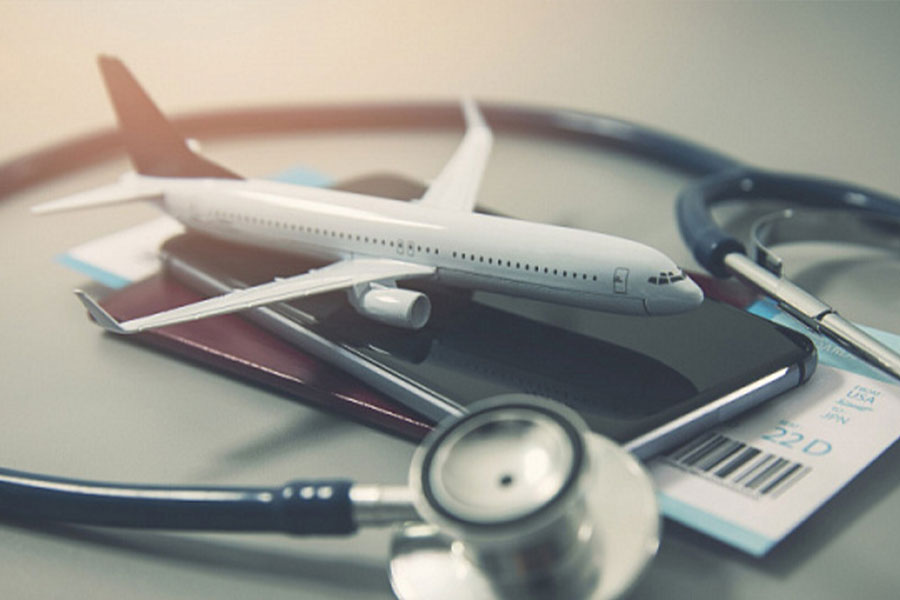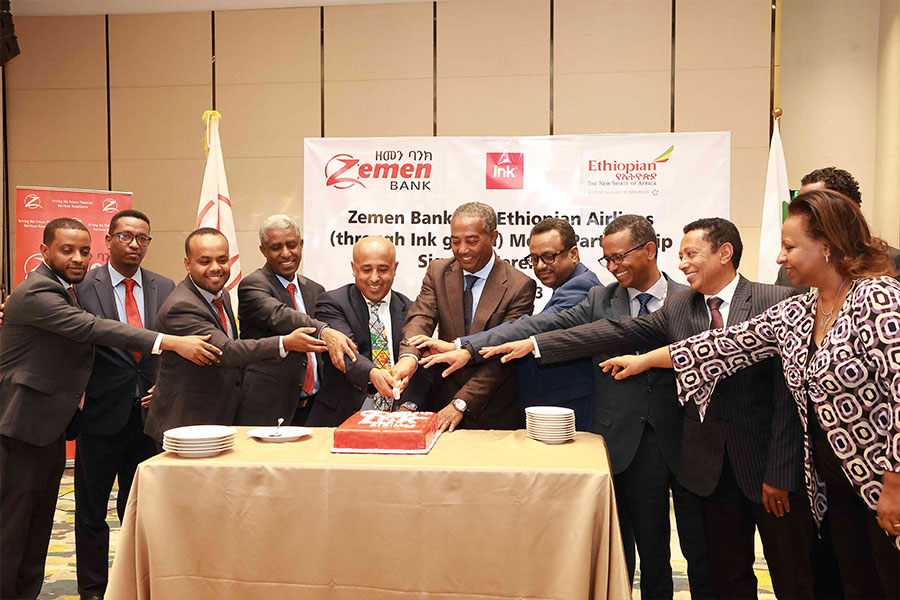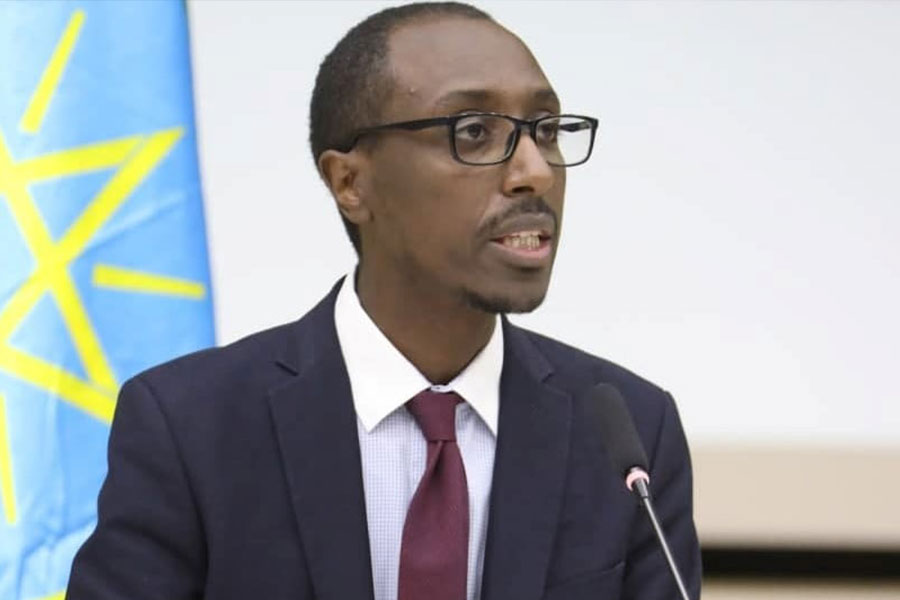
Radar | Aug 21,2021
Apr 20 , 2024
By Halima Abate (MD)
The rise of medical tourism, a phenomenon where consumers travel beyond their national borders to seek medical treatments, is reshaping the global healthcare industry. Rooted in the liberalisation policies of the World Trade Organization's (WTO) General Agreement on Trade in Services, the trade in health services has transformed into a booming global market, characterised by a robust flow of medical professionals, patients, and technology across borders.
Data on the size of people travelling from Ethiopia to destinations of advanced medical facilities is hard to come by. A recent estimate by the International Medical Travel Journal put it at an annual average of 10,000. A cost analysis by experts at the Ministry of Health (MoH) discovered that the cost of annual outflow from Ethiopia due to medical tourism exceeds 100 million dollars.
Medical tourism often encompasses a broad spectrum of treatments. But, it is most commonly sought for specialised procedures not available or prohibitively expensive in the patient's home country. The industry is fueled by the availability of advanced medical procedures abroad with cost differentials, personal recommendations, and the appeal of combining treatment with tourism. Countries like Thailand, India, and Singapore, as well as regions such as Dubai Health Care City, have positioned themselves as hubs for medical tourism, blending high-quality medical care with attractive tourist packages.
These destinations market themselves aggressively, claiming superior medical facilities and competitive pricing, which often includes the cost of a vacation.
The motivations driving medical tourism are manifold. For many, long wait times and the unavailability of certain medical treatments at home push them to seek care abroad. Others are lured by the lower costs associated with procedures in foreign countries. A heart bypass surgery that costs 144,000 dollars in the U.S. might cost only 25,000 dollars in Malaysia. Some medical tourists are attracted by the high standards of care offered in these destinations, often accredited by international organisations, which provide an added layer of reassurance.
Despite the personal benefits experienced by medical tourists, the phenomenon raises systemic questions. The influx of medical tourists can strain local health systems. Hospitals may prioritise high-paying foreign patients at the expense of local populations, potentially leading to longer waits and increased costs for residents.
The economic impact of medical tourism on a destination country can be profound. It generates direct revenue from the health services provided and boosts related sectors such as hospitality, transport, and other tourism-related industries. This creates jobs and contributes to overall economic development. However, the growth is not without its constraints. Local businesses may struggle against well-established medical tourism facilities, and cultural and language barriers can detract from the experience of international patients.
The demographic profile of medical tourists is diverse, cutting across various socio-economic groups. The diversity, however, can exacerbate inequalities in healthcare. Affluent patients can afford to travel and pay out of pocket for high-quality treatment abroad, while poorer segments may lack access to basic healthcare services at home and abroad.
Recognising the potential pitfalls of medical tourism, some source countries have started to explore partnerships with medical facilities overseas to provide their citizens with more healthcare options while managing costs. Such collaborations might offer a partial solution to the long waiting lists in domestic hospitals and could act as a form of outsourcing, extending national health services across borders.
Destinations renowned for medical tourism are not only marketing themselves as mere locations for medical care but are evolving into comprehensive healthcare cities. For instance, Dubai Health Care City and Singapore's biomedical hubs are examples of places where the integration of medical care with biotechnological innovation is promoted. These centres are not just healthcare destinations but also innovation hubs, contributing to advancements in medical science.
Governments play a crucial role in the medical tourism industry. They promote their healthcare sectors abroad and ensure that the influx of foreign patients contributes positively to national healthcare systems. Medical tourists can reinvest revenue into the public health system, enhancing infrastructure and services that benefit both local and international patients.
However, the growth of medical tourism must be managed carefully to avoid widening health disparities or undermining local healthcare provision. It is essential for governments to engage in comprehensive policy planning, involving various sectors including health, trade, and tourism, to ensure that the benefits of medical tourism are balanced against the need to provide equitable, high-quality healthcare for all citizens.
As medical tourism continues to expand, it will be increasingly important for policymakers to navigate these complex dynamics, ensuring that the pursuit of health as wealth benefits both local and foreign populations equally. This approach will require careful regulation, informed public debate, and international cooperation to safeguard the interests of all stakeholders in the global healthcare equation.
PUBLISHED ON
Apr 20,2024 [ VOL
25 , NO
1251]


Radar | Aug 21,2021

Viewpoints | Sep 10,2023

Agenda |

Commentaries | Nov 21,2020

Fortune News | Nov 19,2022

Fortune News | Aug 29,2025

Sunday with Eden | Jul 05,2025

Radar | Oct 23,2023

My Opinion | Jul 15,2023

Verbatim | Jun 29,2024

Photo Gallery | 178087 Views | May 06,2019

Photo Gallery | 168297 Views | Apr 26,2019

Photo Gallery | 159059 Views | Oct 06,2021

My Opinion | 137044 Views | Aug 14,2021
Commentaries | Oct 25,2025

Dec 22 , 2024 . By TIZITA SHEWAFERAW
Charged with transforming colossal state-owned enterprises into modern and competitiv...

Aug 18 , 2024 . By AKSAH ITALO
Although predictable Yonas Zerihun's job in the ride-hailing service is not immune to...

Jul 28 , 2024 . By TIZITA SHEWAFERAW
Unhabitual, perhaps too many, Samuel Gebreyohannes, 38, used to occasionally enjoy a couple of beers at breakfast. However, he recently swit...

Jul 13 , 2024 . By AKSAH ITALO
Investors who rely on tractors, trucks, and field vehicles for commuting, transporting commodities, and f...

Oct 25 , 2025
The regulatory machinery is on overdrive. In only two years, no fewer than 35 new pro...

Oct 18 , 2025
The political establishment, notably the ruling party and its top brass, has become p...

Oct 11 , 2025
Ladislas Farago, a roving Associated Press (AP) correspondent, arrived in Ethiopia in...

Oct 4 , 2025
Eyob Tekalegn (PhD) had been in the Governor's chair for only weeks when, on Septembe...

Oct 25 , 2025 . By YITBAREK GETACHEW
Officials of the Addis Abeba's Education Bureau have embarked on an ambitious experim...

Oct 26 , 2025 . By YITBAREK GETACHEW
The federal government is making a landmark shift in its investment incentive regime...

Oct 27 , 2025
The National Bank of Ethiopia (NBE) is preparing to issue a directive that will funda...

Oct 26 , 2025 . By SURAFEL MULUGETA
A community of booksellers shadowing the Ethiopian National Theatre has been jolted b...